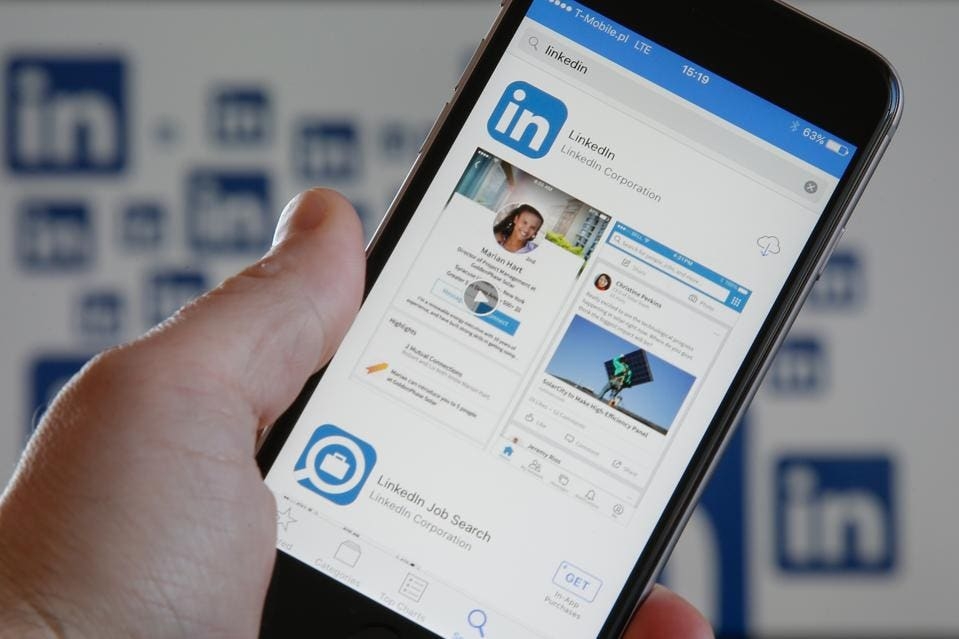Leveraging Social Media for Job Searching: A Complete Practical Guide
Finding a job today is different from how it used to be. Instead of depending only on job boards or career fairs, social media now plays a huge role. Recruiters check profiles, hiring managers follow online conversations, and companies post opportunities on platforms like LinkedIn, X, and Facebook.
This guide shows you how to start leveraging social media for job searching in the right way. It explains how to create strong profiles, connect with the right people, share content that highlights your skills, and reach out to recruiters professionally
Why Social Media Matters for Job Search
Before learning the steps, it helps to know why social media is so important for job seekers today.
- Recruiters search online before calling candidates: Many employers now use social media to find and review potential hires before even posting a job listing.
- You gain visibility: By sharing insights or having a strong profile, you can attract opportunities rather than waiting for them.
- Direct access to decision-makers: Platforms allow you to reach recruiters and hiring managers without needing personal referrals first.
- Your online image affects decisions: Professional profiles and content can make a good impression, while careless posts can reduce your chances.
Social media is no longer optional. Using it wisely gives you a real advantage in a competitive job market.
READ: What Recruiters Look for in Applications
Pick the Right Platforms
Not every platform works the same way. Choosing the right ones keeps you focused and saves time.

- LinkedIn: Best for professional networking, job postings, and connecting with recruiters. It is the top platform for most industries.
- X (formerly Twitter): Useful for following industry leaders, spotting opportunities quickly, and joining professional conversations.
- Facebook: Great for local or niche job groups where smaller businesses post openings.
- Instagram & TikTok: Ideal for creative careers like design, media, or marketing where you can show your work visually.
Start with one or two platforms and build a strong presence there before expanding.
Optimize Your Profile for Recruiters
Your profile is your first impression. A good one shows recruiters exactly who you are and why you’re a strong candidate.
Here is what to focus on:
- Profile photo: Use a clear, professional-looking picture with good lighting.
- Headline: Instead of just your job title, include skills or roles you want, for example, “Data Analyst | Python, SQL, and Machine Learning.”
- Summary section: Write a short, engaging summary describing your skills, experience, and career goals. Use real examples like “Managed a project that improved sales by 20 percent” rather than vague statements like “hard-working.”
- Keywords: Add skills and terms recruiters search for so your profile appears in searches. Keep it natural, not forced.
- Experience and skills: Update regularly to show growth and recent achievements.
- Custom profile link: On LinkedIn, create a simple URL with your name so it’s easy to share.
An optimized profile makes you easier to find and more attractive to recruiters.
Build and Grow Your Network
Connections matter. A good network leads to referrals, advice, and more job opportunities.

Ways to grow your network include:
- Connect with people you already know: Start with colleagues, classmates, and alumni.
- Join industry groups: Many platforms have groups for different professions. Engage in conversations rather than staying silent.
- Follow industry leaders: Comment thoughtfully on their posts and share insights from your experience.
- Attend virtual events: Many webinars or career discussions advertised on social media lead to meaningful connections afterward.
- Engage actively: A simple like is fine, but thoughtful comments or sharing useful content get you noticed.
A strong network often brings opportunities before they are posted publicly.
READ: Networking on Twitter: How to Connect With Influencers and Recruiters in 280 Characters
Share Helpful Content to Show Expertise
Posting helpful content makes you visible and positions you as someone who knows their field well.
Here’s how to do it:
- Write short, useful posts: Share lessons you’ve learned, quick tips, or industry news.
- Highlight your work: Showcase completed projects, certifications, or creative work in featured sections when possible.
- Mix text with visuals: Use simple charts or short videos to make posts stand out.
- Use hashtags wisely: Relevant hashtags help people outside your network find your posts.
- Stay consistent: Even one post per week keeps you visible over time.
When recruiters see you share insights and valuable information, it shows passion and expertise.
Follow Companies and Recruiters
Staying connected to employers helps you spot opportunities early and learn what they want in candidates.
- Make a target company list: Follow their official pages on LinkedIn or Facebook to see job postings and announcements.
- Follow recruiters in your field: Many share job opportunities or hiring tips on their pages.
- Engage with their content: A simple comment or thoughtful question keeps you on their radar.
- Set job alerts: Use platform features to get notifications when relevant roles open up.
This keeps you informed and ready when the right job appears.
Use Direct Messaging the Right Way
Direct messaging can open doors when done correctly.

Here’s how to use it effectively:
- Keep it short and polite: Introduce yourself briefly, explain why you’re reaching out, and mention how you found them.
- Personalize your message: Refer to a job post, article, or shared connection instead of sending generic texts.
- Do not ask for a job immediately: Instead, ask for advice, information about the company, or the best way to apply.
- Follow up professionally: If you don’t hear back, wait at least a week before sending a gentle reminder.
Professional and respectful messages get better responses.
Apply for Jobs Directly Through Social Media
Many platforms now let you apply for jobs without leaving the site.
- LinkedIn: Use the Jobs section and the Easy Apply feature for fast applications.
- Hashtags on X: Search #Hiring or #JobOpening to find roles posted directly by recruiters or companies.
- Company pages: Some businesses post job opportunities on social media before updating their websites.
Checking these regularly helps you find roles faster than relying only on traditional job boards.
READ: How I Built a Six-Figure Business as a Remote Virtual Assistant
Avoid Common Mistakes
Some mistakes can hurt your chances even if your profile and network are strong.
Avoid these errors:
- Posting unprofessional or offensive content.
- Leaving personal posts public while hiding professional ones.
- Using too many vague buzzwords instead of real examples.
- Spamming recruiters with the same messages or applying for every job without reading details.
A clean, professional, and targeted approach works far better.
Keep Learning and Updating Your Strategy
Social media and hiring trends change constantly. Staying updated keeps you competitive.
- Follow career experts and industry professionals to learn new job search tips.
- Take free online courses or attend virtual workshops to improve your skills.
- Review what works for you. If certain types of posts or messages get better results, do more of those.
- Update your profiles regularly with new achievements or projects.
Continuous learning and improvement keep you ahead of other job seekers.
Social media is one of the most powerful tools for finding jobs today. By choosing the right platforms, building a strong profile, sharing useful content, and connecting professionally with recruiters, you increase your chances of landing better roles faster.
Avoid common mistakes, keep learning, and stay active. Over time, these small steps create big results in your job search journey.
